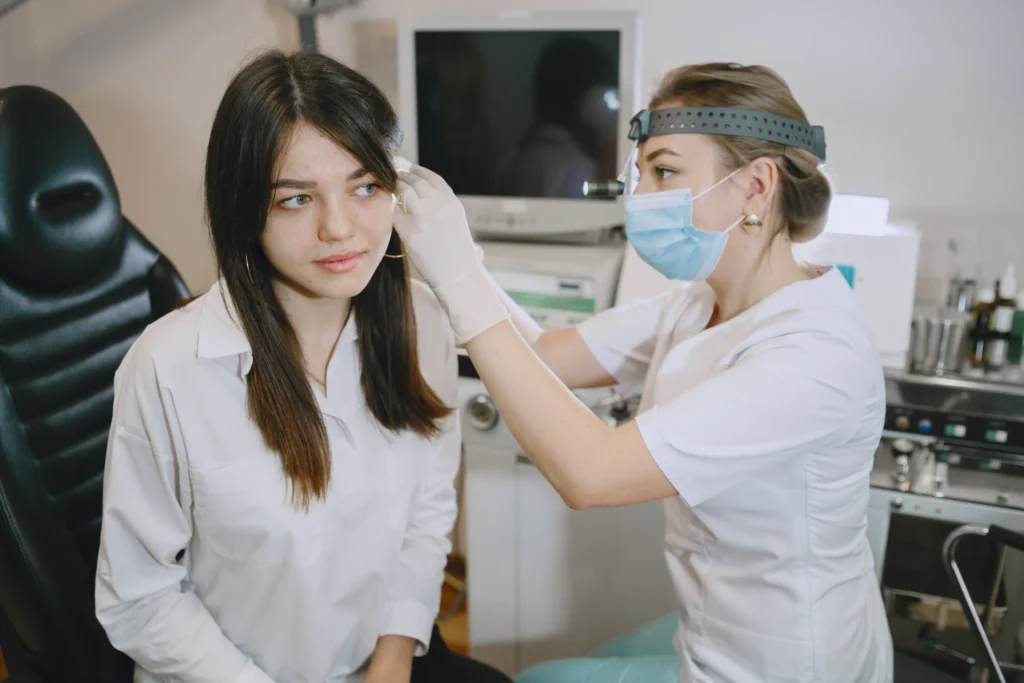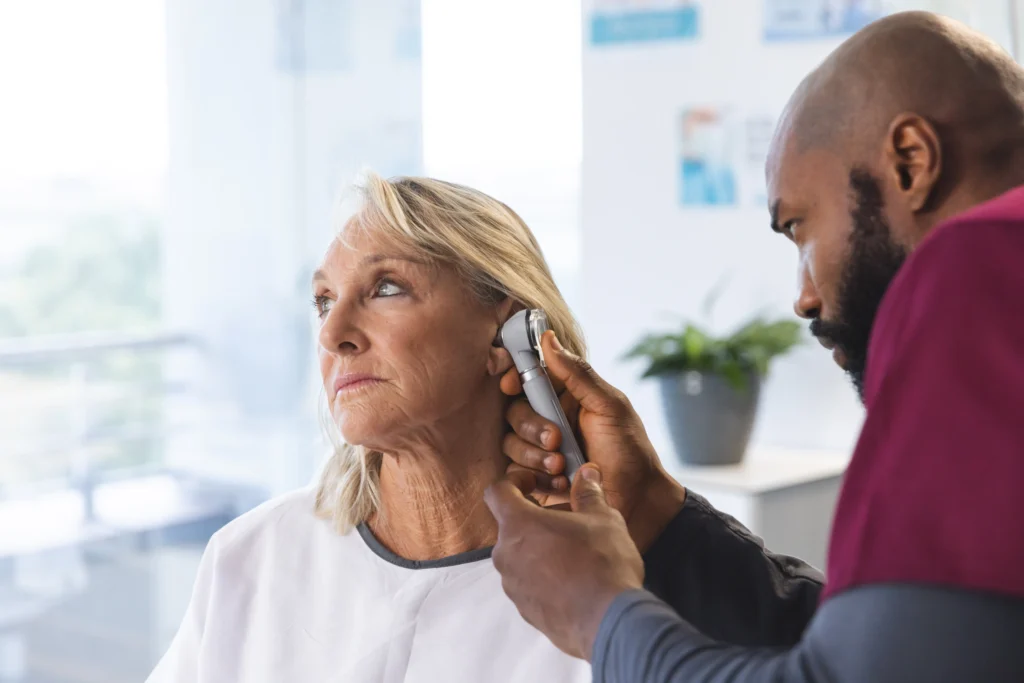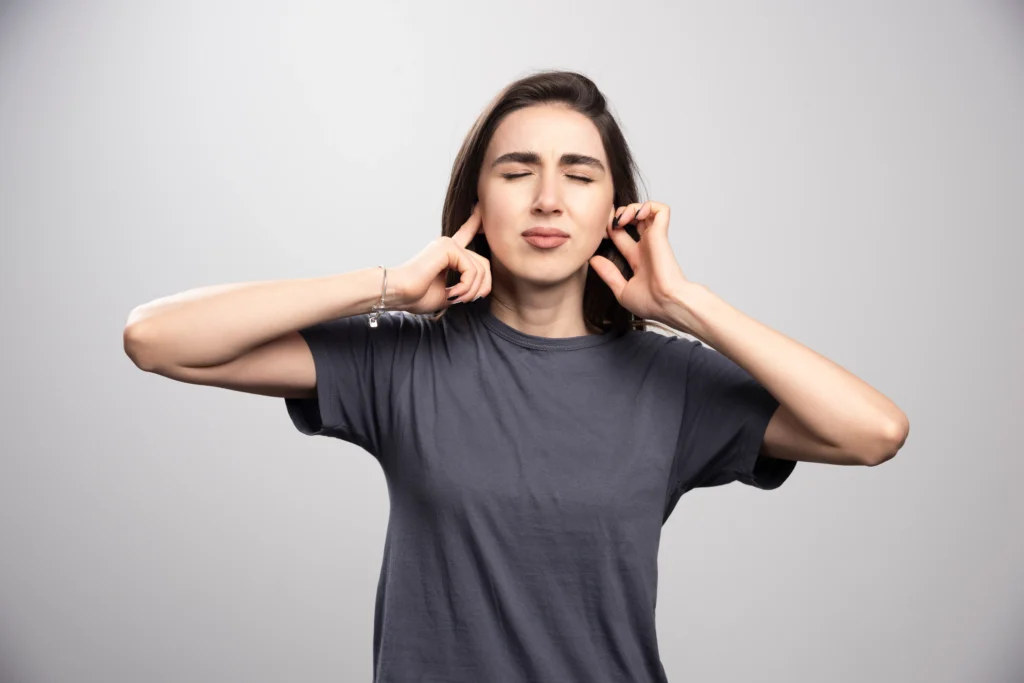Figuring out whether you have hearing loss can be challenging. Most people go for years before they realize they have a problem. Unfortunately, the longer you wait to get help, the more difficult it is to slow down the progression of the condition. People with hearing loss can experience secondary conditions, such as tinnitus and depression, if they don’t get help quickly.
Therefore, it’s a good idea to go to your audiologist for regular checkups. Adults aged 18-60 should go for hearing checkups every three to five years while those over the age of 60 or who work in loud environments, may want to go every year, just as a precaution.
Patients can wear hearing aids for all levels of hearing loss defined by the Hearing Health Foundation (HHF). However, as you’ll discover below, assistive hearing devices are better for some types of hearing loss than others.
Do You Need Hearing Aids for Mild Hearing Loss?
The HHF defines mild hearing loss as trouble hearing sounds quieter than 26-40 decibels (dB). Noises in this range might include general background noise, whispering or the ambient noise of water flowing along a stream. While the classification mild seems quite innocuous, it is important that patients discuss how much the condition is affecting them with your audiologist. The toll it is taking on daily life is the most important consideration.
Adults with mild hearing loss should begin using hearing aids immediately, even if they can still pick up on most conversations. The reason for this is that it helps to improve brain function by stimulating auditory processing. The more sounds you can hear, the more active the brain becomes and the slower the progression of the condition.
Do You Need Hearing Aids for Moderate Hearing Loss?
The HHF defines moderate hearing loss as difficulty hearing any sounds below 41 to 55 decibels. Patients in this category can often benefit tremendously from wearing hearing aids. These allow them to detect normal conversation, street traffic and birdsong.
Even if your moderate hearing loss is not preventing you from having an active social life, hearing aids are still worth considering. That’s because they help improve brain function, just as they do for patients with mild hearing loss.
Hearing Aids for Moderately Severe Hearing Loss
Patients with moderately severe hearing loss struggle to hear sounds between 56 and 70 decibels. Individuals in this category find it difficult to hear regular speech at all without an hearing device. Their ears may also fail to pick up the sound of the dishwasher or washing machine while it operates.
Hearing Aids for Profound Hearing Loss
Profound hearing loss occurs when patients can’t hear sounds below 91 decibels. At this level, amplification of ambient noises via a hearing aid is unlikely to make much difference. Often, the issue for patients in this category is not a lack of volume, but damage to the machinery of the inner ear itself, preventing sound signals from traveling to the brain, no matter how loud things get. In these cases, hearing aids may not be effective, however, it depends on the individual patient.
Get A Hearing Aid as Early as Possible
Individuals with sensorineural hearing loss should get a hearing aid as soon as possible. Assistive hearing devices can help prevent conditions, such as tinnitus, and they stimulate the brain’s auditory cortex. They can also help to prevent social isolation and depression – both common side effects of being hard of hearing.
Please note, though, that you might not be able to tell whether you have hearing loss easily. That’s because, at first, the signs tend to be subtle. Asking people to repeat themselves might seem normal and doesn’t confirm that you have a problem.
The only way to find out if you have hearing loss is to go for a hearing test. Here an audiologist will give you a pair of headphones to wear and then pipe pure tones to you at various volumes, asking you to indicate when you can hear them. They will then use this information to characterize your hearing loss and tell you what you need to do next.
Check Your Hearing Today
If you’re concerned about your hearing and would like to know whether you should wear hearing aids, call Adirondack Audiology at +1 (802) 922-9545 for more information or book an appointment.









